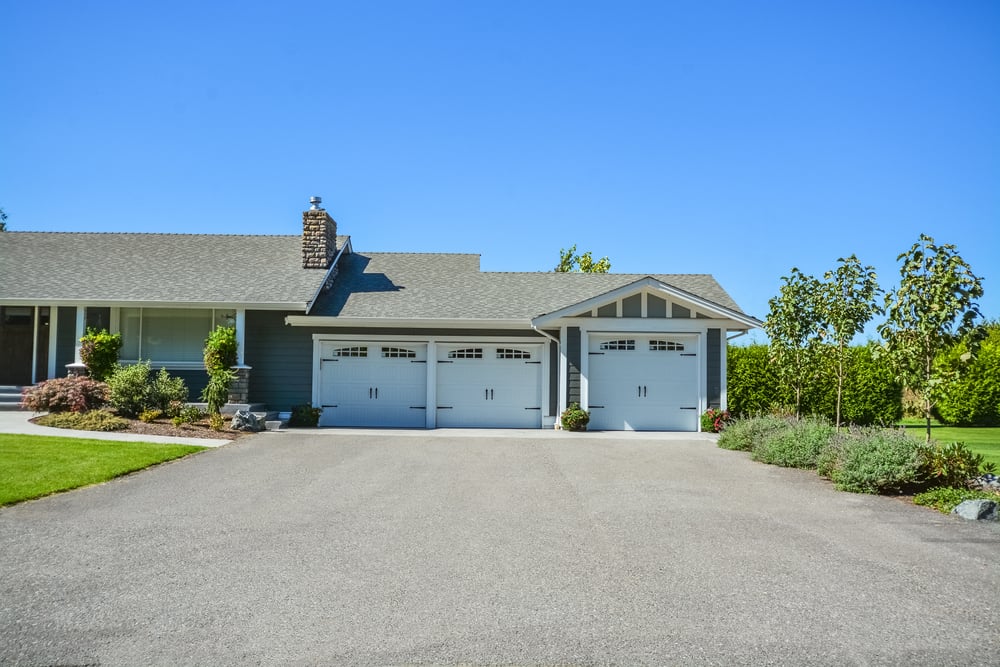The material you use for your driveway determines its appearance, durability, and functionality. Whether renovating an existing property or building a new home, using suitable driveway material is essential. If not done correctly, you will experience unnecessary wear and tear, costly repairs, and an unappealing driveway. That’s why you need a qualified paving service that will help you create a sleek and durable driveway that meets your expectations.

Gravel Paving
Gravel paving provides an affordable and quick method for installing a driveway using your preferred gravel type.
Gravel Paving Pros
Easy to maintain
Maintaining gravel paving is easy. Regular maintenance involves adding more gravel whenever an area sinks due to water, snow, and weight. You will need to even it out about twice or thrice yearly based on the weather conditions and usage.
Quick Installation
Installing gravel paving is easy and fast. The process involves grading the driveway and adding gravel and pea gravel for filling. It settles within a week, and then you can drive on it.
It is affordable
Gravel paving is an affordable solution for long and wide driveways. Although it will require frequent topdressing, the process is inexpensive.
It drains water
Gravel is a porous material. For this reason, water flows over gravel driveways into the ground. Water doesn’t get trapped, thus preventing cracks and deterioration.
Gravel Paving Cons
It easily forms ruts and sinkholes
When used over time, gravel driveways develop gaps and holes, making the surface uneven and unappealing.
It’s ineffective in extreme weather
During winter, driveways become slippery, and removing ice and snow off gravel driveways is difficult. If you dig in with a shovel, you’ll end up scooping snow and gravel. Users often add salt and sand to avoid slipping when driving.
It’s prone to dirt and weeds
Driving along gravel driveways, mainly when dry, makes dust and dirt fly in the air. This dirt makes the exterior of your car and home dirty.
Weeds thrive on gravel-based surfaces, detracting the appeal of your driveway. You can remove them by plucking or using chemicals, but they will still grow back.
It easily washes out
When installed in areas with constant flooding and heavy rains, the water will wash out the gravel because it’s not a firm paving method.
Asphalt Driveways
An asphalt driveway mimics a concrete surface in functionality and appearance but at a cheaper cost. It is a petroleum-based driveway favorable for the ever-changing temperatures and weather conditions.
Asphalt Driveway Pros
It is aesthetically appealing
Asphalt paving provides aesthetically appealing driveways, even better than concrete does. The surface is black, smooth, and has lines that create a sense of style and appeal.
It is flexible
A contractor can modify to meet the needs of varying sizes and types of driveways. Its flexibility enables it to hold various traffic loads and cater to the different climatic conditions of an area. There are specific mix ratio solutions for every driveway, from rural to suburban and urban paths.
It is durable
Although the durability of an asphalt driveway depends on the installation, use, and climate, its lifespan ranges between 12 to 35 years with an experienced maintenance service.
It is ideal for all weather conditions
Asphalt can withstand any weather condition, whether it’s heat or snow. It absorbs heat during hot weather and melts snow during winter because it possesses insulation properties.
Asphalt Driveway Cons
Style limitations
An asphalt driveway doesn’t offer different styling and colors for those who consider style or color in exterior landscaping. It’s only available in black. However, there are coating options that allow for custom colors to be applied on top of your asphalt surface as a protective layer if desired.
Frequent maintenance
An asphalt driveway requires cleaning with brooms or power washes twice a year to eliminate dirt. It is also recommended to sealcoat an asphalt driveway once every two to three years as part of a pavement maintenance program to extend the life of the pavement.
Long curing time
An asphalt driveway takes between three to twelve months to fully cure; however, you can still use the driveway during that time. Before it is fully cured, the surface can be soft and more susceptible to damage.
It contains surface oil
An asphalt driveway sometimes produces some oil or tar, which rises to the surface. When you drive along such driveways, you carry these substances into your home, creating a mess.
Repair Your Driveway with Neyra Paving
While a gravel driveway provides an affordable and quick paving option, an asphalt driveway gives you a durable solution favorable in extreme weather. Call Neyra Paving at 513-733-1001 before choosing the best paving solution for your driveway, consider the pros and cons of both options. After weighing your options, contact an expert to install, repair or upgrade your driveway according to your taste and preferences.
Image by Imagenet/ shutterstock.com
